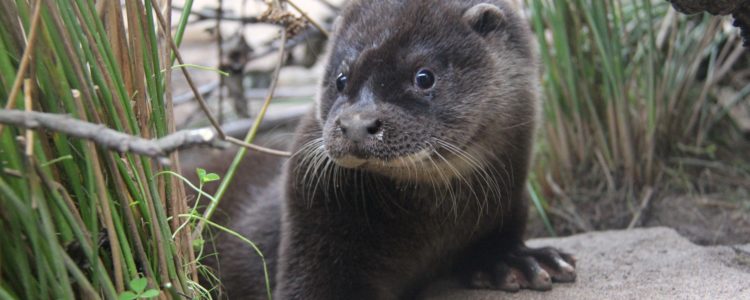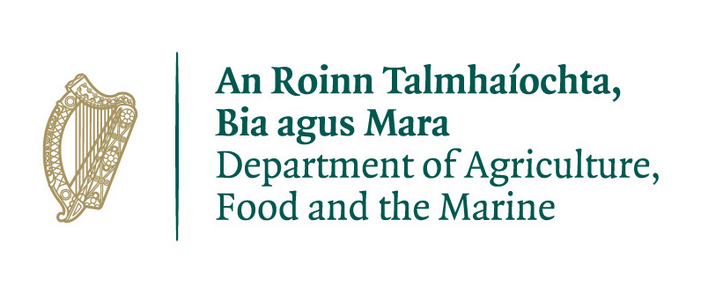
Reporting a Wildlife Crime
If you SUSPECT a wildlife crime is/has taken place – REPORT IT
Your National Parks & Wildlife Service (NPWS) Conservation Ranger will appreciate the information and be able to tell you if it is or is not a crime.
Some examples of wildlife crimes can be found on the ‘What is a wildlife crime’ page
CONTACT DETAILS: NPWS
National Parks & Wildlife Service
Address: 90 King Street North, Dublin 7, D07 N7CV
Tel: 01 5393201 (or 01 888 2000)
Website: National Parks & Wildlife Service
Email: WildlifeEnforcement@npws.gov.ie
NPWS Conservation Rangers and Regional Managers: visit the NPWS Contact Us page
Designated Nature Conservation Areas Freephone Helpline: phone 1800 40 50 00 to find out if the area is a ‘Designated Nature Conservation Area’ or visit the ‘Protected Sites’ tab on the NPWS website.
Address: Custom House, Custom House Quay, Dublin 1, D01 W6X0
Email: press@housing.gov.ie
Tel: 01 888 2638
If a crime or incident is happening now or if anyone is in immediate danger ALSO, call An Garda Síochána on 999 or 112
CONTACT DETAILS: Gardaí
An Garda Síochána
National Bureau of Criminal Investigation (NBCI) Environmental & Wildlife Crime Section
Address: Walter Scott House, Military Road, Dublin 8
Tel: (01) 666 3374
Website: National Bureau of Criminal Investigation
Email: envi.wildlife.crime@garda.ie
Emergency SMS
The 112 SMS service lets deaf, hard of hearing and speech-impaired people send an SMS text message to the Emergency Call Answering Service where it will be passed to the appropriate emergency service. You will need to register your mobile phone on www.112.ie
Non-emergency or general enquiries: contact your local Garda Station (click for Garda Stations Directory). Telephone numbers for all Garda stations and key offices are available at and they are also published in the Eircom Telephone directory
Garda Confidential Line: 1800 666 111
Although it will assist the NPWS and Gardaí if you provide as much information as possible, you do not have to give your name if you ring to report an incident
Crimestoppers: 1800 250025
Aimed at people who have information on crime. It guarantees anonymity and offers cash rewards for information
Traffic Watch: 1890 205805
To report driving hazards and traffic-related incidents (e.g. wild animal on the road)
Press Office for media enquiries: 01 666 2032/35/37
Email: pressoffice@garda.ie
(After 11pm, media enquiries should be directed to the Command and Control Centre: 01 666 3109)
Inland Fisheries Ireland (IFI) encourages members of the public and farmers to report illegal fishing, water pollution or invasive species
CONTACT DETAILS: Inland Fisheries Ireland
Tel: confidential phoneline 0818 34 74 24 (open 24 hours a day/ 7 days a week)
Website: Inland Fisheries Ireland
If you come across a live injured animal at the scene, also, call a vet and wildlife rehabilitator
CONTACT DETAILS: Irish Wildlife Matters
Irish Wildlife Matters website has a ‘Contacts’ page with a map showing your nearest wildlife rehabilitator and vet that is happy to treat/provide advice regarding an injured wild animal. It also gives basic first aid advice for the general public and veterinary professionals.
Website: www.irishwildlifematters.ie
OR
Department of Agriculture, Food & the Marine can give you a number for your local District Veterinary Office (DVO) who can give you a number for the closest vet to you. (click HERE for the list of Regional Veterinary Offices)
Address: Department of Agriculture, Food & the Marine, Agriculture House, Kildare Street, Dublin 2
Tel: (01) 607 2000
Lo-call: 1890 200 510
Website: www.agriculture.gov.ie
Email: info@agriculture.gov.ie
OR
Veterinary Council of Ireland has an option ‘Search for a Registered Premises’ on their website homepage
Address: Veterinary Council of Ireland, 53 Lansdowne Road, Ballsbridge, Dublin 4, Ireland
Tel: (0) 1 668 4402
Website: www.vci.ie
Email: info@vci.ie
RECOGNISE a Wildlife Crime Scene
BIRDS
- Anyone trapping wild finches with nets or cages or birdlime
- A native songbird in a cage without a closed-ring on its leg
- Anyone killing wild birds, other than game species in the open season or pest species under licence, permit or derogation
- Anyone destroying or removing a birds nest containing eggs or young from an occupied building
- Anyone wilfully disturbing wild birds on or near a nest containing eggs or chicks
- Anyone taking or keeping birds of prey, other than in accordance with a licence
BATS
- Anyone blocking up holes in a building where bats roost, or
- Any interference with bats or their roosting or resting places
BADGERS
- People with terriers, spades/shovels in an area inhabited by badgers
- Evidence of digging and/ or any other interference with a badger sett
- Snares and traps set on badger paths
- Anyone in possession of a live badger
HARES
- People in open fields with greyhounds and/or lurcher dogs
- People in open fields with long nets (day or night time)
- Anyone in possession of a live hare
SEALS & CETACEANS
- Anyone persecuting or killing seals
TRAPS
- Any sale or use of inhumane traps such as leg-hold (gin) traps or glue traps and other unapproved traps such as fox and rabbit snares without the appropriate placed stops to prevent choking
- Spring traps mounted on poles
- Use of magpies or grey crows as live decoys in larsen traps where they are not provided ample food and water and the cage is not of sufficient dimensions to enable the bird to move and exercise freely
POISON
- Anyone placing any poisoned or anaesthetic bait that is animal or contains any animal substance in any place to capture, poison or kill any wild bird or protected wild animal, or where it is likely to do so, or
- Laying any poisonous or poisoned substance or stupefying bait on any tree, pole, cairn or other structure in, or in the vicinity of, any place frequented by wild birds, wild mammals or protected wild animals
WILDLIFE DEALING
- The sale of wild birds or other protected species, other than by a licensed wildlife dealer
- The sale of venison or the meat of other game species, other than by a licensed wildlife dealer
- Anyone engaging in taxidermy in respect of wild birds or protected wild animals, other than a licensed wildlife dealer
C.I.T.E.S
- Any unregulated import / export or trade in endangered wild animal and plants or their parts or derivatives (mostly exotic species but also native species such as many of our birds of prey)
INVASIVE SPECIES
- Anyone who breeds, releases or allows or causes to disperse or escape from confinement, any animal which is not ordinarily resident in or is not a regular visitor to the State in a wild state, e.g. Muntjack deer, Chinese mitten crab, Ruddy duck
- Anyone who plants, disperses, allows or causes to disperse, spreads or otherwise causes to grow, plants which are regarded as “invasive alien species”, e.g. Japanese knotweed, Giant hogweed or Himalayan balsam
HEDGEROWS
- Cutting or destroying any vegetation growing in any hedge of ditch during the period beginning on the 1st day of March and ending on the 31st day of August (The bird nesting season)
HABITAT DESTRUCTION
- Cutting, burning or otherwise or destroying any vegetation on uncultivated lands during the period beginning on the 1st day of March and ending on the 31st day of August (The bird nesting season)
- Any unauthorised damage to vegetation growing in any area designated as SAC, SPA or NHA
HUNTING / POACHING
- Night time lamping in forestry or other areas inhabited by deer species
- Night time lamping from vehicles on public roads
- Hunting game species outside their open season period
Recording evidence at the Crime Scene
Assessing whether a criminal offence has taken place may not always be straight forward and other possibilities such as natural deaths, predation and legal hunting should be considered.
If you come across a wildlife crime scene or a dead bird or object that may be related to a wildlife crime, every piece of information is – or might be – important, but it needs to be recorded properly and accurately for the authorities to have a chance of prosecuting an offender.
Before you do anything else it is very important that:
- You do NOT put yourself in danger by approaching anyone you suspect of committing a crime – they may be violent and/or aggressive.
- You do NOT touch any dead birds or animals. They may be poisoned baits or victims of poisoning. Many poisons (e.g. Carbofuran) are extremely dangerous to us as well as wildlife in even very small amounts and can be absorbed through the skin.
- You do NOT disturb the scene by walking around unnecessarily – small pieces of evidence (cigarette ends, footprints, the marks left by a spade etc) may be lost or trampled into the mud or grass.
- You do NOT move any items at the scene – unless asked to do so or an animal or human”s welfare is/may be compromised by leaving it at the scene.
- You do NOT mark the site (e.g. with a white plastic bag) Although being able to see a marker from a distance might sound like a good idea, it will also alert an offender that someone has been at the site and they might go back and remove evidence.
- You do NOT do anything illegal yourself – leave crime to the criminals!
Record the date and time
- Record the transport
Do this as soon as possible, as suspects can be traced from the registration number
Photograph/write down any vehicle registration numbers that are or might be related to the incident. It is legal to record a registration number if you suspect that the vehicle has been or may be used in a crime. - Record the person
Recording the offender’s face is important of course, but their clothing, the bags they’re carrying, the equipment they’re using are all important too. - Record the scene
Take photographs or video of the scene using a mobile phone or camera etc (or make as accurate a sketch as possible). - If possible try to cover any items, perhaps with vegetation, to make them safe; but make sure you don’t disturb the crime scene in the process!
- If photographing an object, try to put something beside it for scale (e.g. a coin or notebook) providing it won’t disturb the crime scene.
- Record the location
It is particularly important to record locations accurately (apps that provide GPS data are available for most smartphones)
In an urban area note the address or a description of the location. In the countryside take wide angle photographs of any landmarks; a tree, a distinctive fence line, a hill. - Even if in doubt take a photograph and email it to the National Parks and Wildlife Service nature.conservation@chg.gov.ie
You cared enough to report the crime, follow it up!


